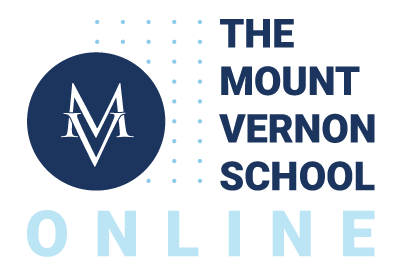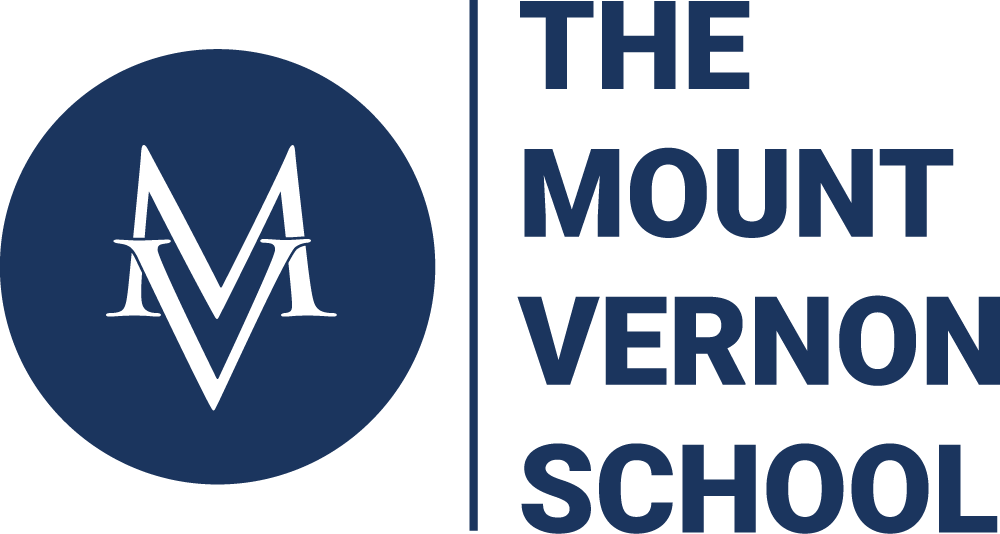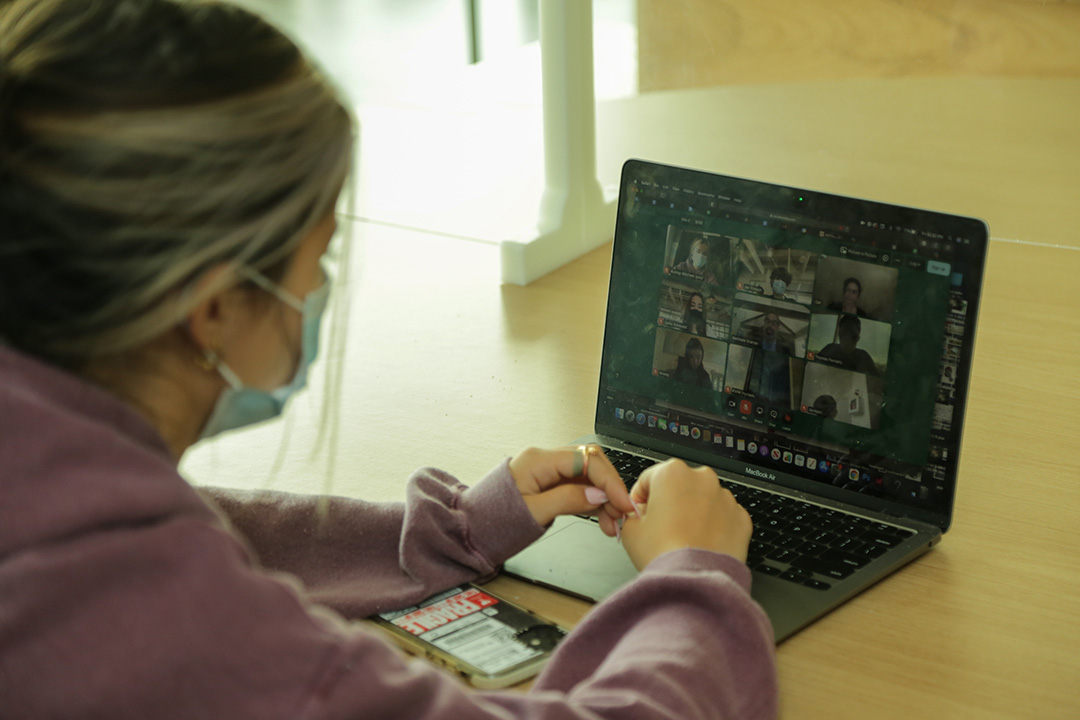In December the School announced plans to build a global campus with the launch of The Mount Vernon School Online. The asynchronous, flexible high school experience will launch a grade 9 cohort in August 2022 and will add an additional grade level over the following 3 years to offer a high school diploma.
We sat down with the Online Program’s Admissions Catalyst and grade 9 humanities teacher, Ben Potter to learn more…
MV: Tell us about your transition from being an Upper School teacher here at Mount Vernon to what you’re doing now with the online program.
BP: I started at Mount Vernon in 2017. I was really lucky to have great mentors on the humanities team over the 4 years I taught at the upper school. People like Meg Brooks and Amy Choi, Jen Lloyd, Chris Byrum and Audrey Schewe. They all taught me the ‘Mount Vernon Way’ – and a more learner-centered approach.
About a year ago my wife and I decided we wanted to move to Charlotte to be closer to family after our son was born. I was very honest with the Administration and said, I might be leaving, but didn’t really want to be anywhere else, because Mount Vernon gave me a new life in a lot of ways. I was very fortunate the school asked me to stay on in a remote capacity with Mount Vernon Ventures.
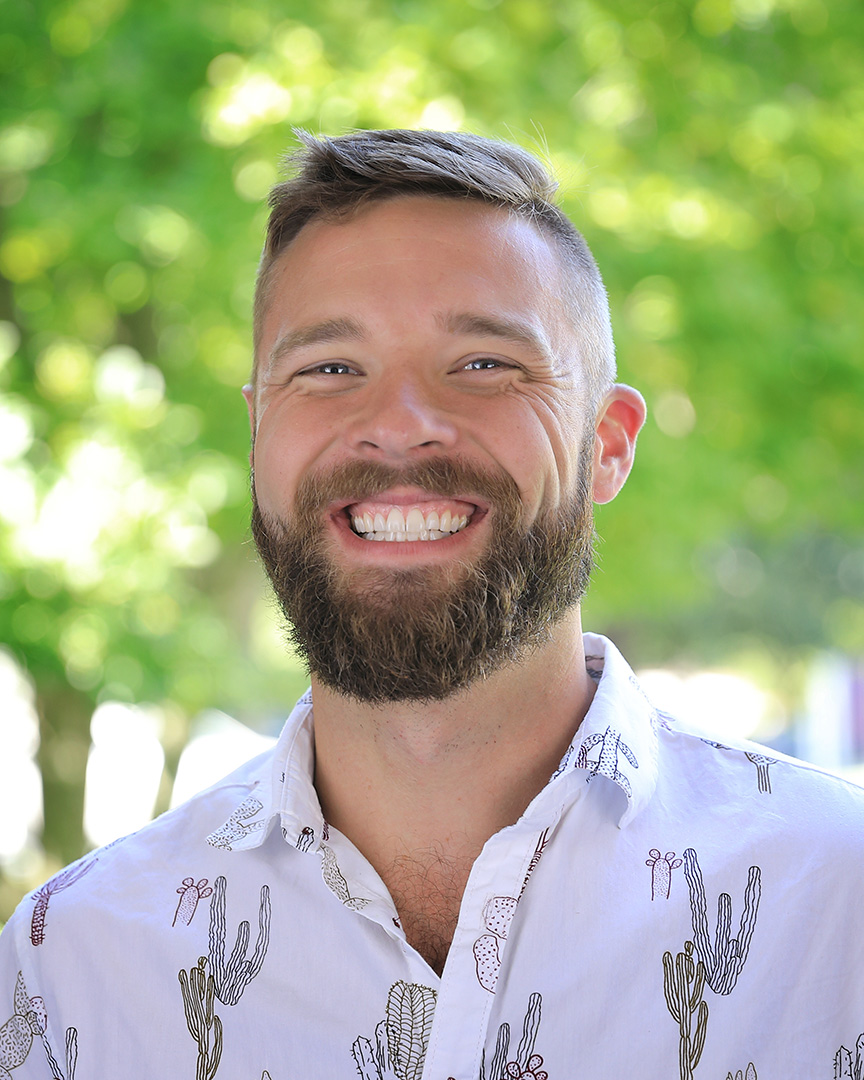
My role has been really different. I am currently not a classroom teacher, but I am still in education. With Ventures, I am connecting with people who are looking for a different type of educational experience. I have more of a pulse on what teachers need. I have spent time researching different institutions to learn how they are doing online learning, to inform our program. I have been looking at what online programs look like to help shape how ours will look. Exploring what elements are working for other schools that we should adopt versus which elements are not working as well or wouldn’t work in our setting.
MV: Interesting, how long have you been working on the pre-launch phase of the online program?
BP: We’ve been looking into different programs and researching for 9-10 months. Our main question has been how do we develop a program that is asynchronous but relational. Lot of programs out there are synchronous. We are trying to create a program that appeals to a more flexible family – maybe they have a student that is dedicating a lot of time to a sport, or an acting career or possibly they have a family that is traveling. We know relationships are foundational to learning and we’ve tried to imagine what the relational aspect of this program might look like.
MV: Are there platforms or tech tools that can create a relational aspect to an asynchronous program?
BP: We are exploring a platform called Frame – because it allows you to have an avatar and navigate a virtual world. You can move from classroom to classroom, teachers are able to put things on the board. Even though students are in front of the screen, the screen gives more of a 3 dimensional feel… People’s volume increases when you get closer and decreases the further you get away. It just feels more real and can complement a zoom experience. I think offering an element like this can help our program be a bit more differentiated.
MV: How will MVonline foster connections within an asynchronous program?
BP: It’s not necessarily always about a tech tool, it’s more about what resources can we offer to students. One thing I loved about teaching in the upper school, is I knew where a student was in their mastery of something, but I also knew what their favorite starbucks beverage was.
Being able to have frequent contact will be part of the program. We will encourage students to reach out to connect with the teacher, in addition to weekly check-ins. Students will know the teacher and teachers will know the students.
There will be regular and timely feedback on student assessments – within 48 hours.
Students will have academic advisors and meet with them every week in addition to the teacher.
And they will have a cohort – the people that are enrolled in MVonline. They will meet as a cohort formally once a mod, but will be encouraged to meet informally whenever they need.
Parents will also be very much in the loop. Students, parents and teachers will have mid-mod meetings where they will view the progress of their goals.
MV: How did Covid and teaching remotely prepare you for your new role with the online school?
BP: I think our team quickly understood, there is a real difference between emergency remote learning and strategic online learning.
During the spring of 2020, I was teaching a course called The History of Now. Luckily for me, scheduling, fate and dumb luck aligned. Lisa Solomon from the Stanford d.School, was working on this thing called ‘Vote by Design’ and it lined up perfectly with the class.
We piloted the program with the D School. I learned so much from Lisa and her ideas. This is one of those key moments – where I realized Online learning is more than trying to make physical learning intelligible through a screen. There is another dimension to this here, Lisa really showed me that.
